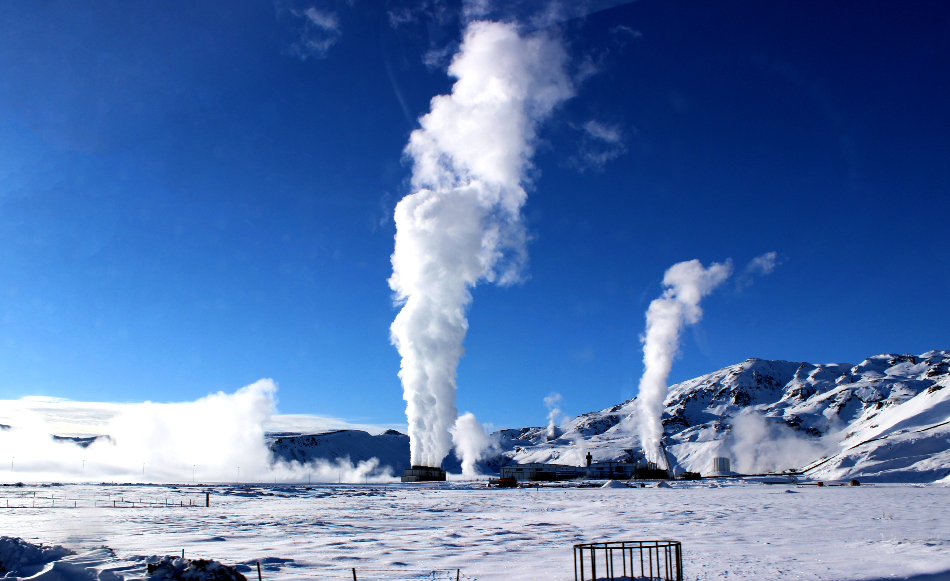Apr 19 2008

Image Credit: Barbara Brockhauser/Shutterstock.com
Article updated on 21/01/20 by Gaea Marelle Miranda
The core of the Earth, which is 4,000 miles below the surface, can reach temperatures of 9,000°F. This generated heat is known as geothermal energy.
Geothermal energy radiates outwards from the core and it heats the surrounding areas. The potential of geothermal energy in the uppermost 6 miles of the Earth's crust amounts to 50,000 times the energy of all oil and gas resources in the world.
Types of Geothermal Power Plants
Geothermal power plants convert hydrothermal fluids to electricity. Three geothermal power plant technologies are used to convert hydrothermal fluid into electricity. The type of conversions used is dependent on the state and temperature of the fluid.
Dry steam geothermal power plants
Dry steam geothermal power plants are the oldest type of geothermal power plants. Dry steam geothermal power plants use steam that enters directly into a turbine from a geothermal reservoir. The steam then drives a generator and electricity is produced. Excess steam and very small amounts of gases are released by dry steam geothermal power plants. With the onset of technology and modernity, only a few industries utilize dry steam geothermal power plants at present.
Flash steam geothermal power plants
The most common type of geothermal power plant is flash steam geothermal power plants. Flash steam geothermal power plants use hydrothermal fluids at temperatures above 182°C to generate electricity. The hydrothermal fluid is sprayed into a tank which is held at a much lower pressure than the hydrothermal fluid. This pressure difference causes some of the hydrothermal fluid to flash or rapidly vaporize. Electricity is produced by the vapors driving a turbine, which in turn drives a generator. More energy can be extracted if any hydrothermal fluid remains as it can be flashed again in a second tank.
Binary-cycle geothermal power plants
Binary-cycle geothermal power plants are different from dry steam and flash steam geothermal power plants in that steam from a geothermal reservoir never comes into contact with the turbine or generator. This type of power plant extracts energy from moderate-temperature fluids that can be found in most geothermal areas. Hot geothermal fluid, together with a secondary fluid, is passed through a heat exchanger.
Any fluid with a boiling point lower than water can be used as the secondary fluid. The heat from the geothermal fluid causes the secondary fluid to flash and turns into vapor, which then drives the turbines to produce electricity. Since the binary-cycle geothermal power plant is a closed-loop system, nothing is emitted into the atmosphere. Moderate-temperature water is the more common geothermal resource. Generally, modern geothermal power plants have begun to employ the binary-cycle system.
The Direct Use of Geothermal Energy
Direct heat for commercial, industrial, and residential activities can be provided by geothermal reservoirs of low to moderate temperature water. Substantial savings can be achieved in homes and businesses through the direct use of geothermal energy. Direct use of geothermal energy is also related to environmental sustainability because it contributes only a small percentage of air pollutants emitted by burning fossil fuels.
Geothermal Heat Pumps
Also known as the ground source heat pump, a geothermal heat pump can be considered as a highly efficient renewable energy technology. At present, geothermal heat pumps are gaining wide acceptance for both commercial and residential uses. Geothermal heat pumps could be used for space heating and cooling, and water heating. The key to the geothermal heat pump’s capacity is that it works by concentrating naturally existing heat, instead of producing heat through the burning of fossil fuels.